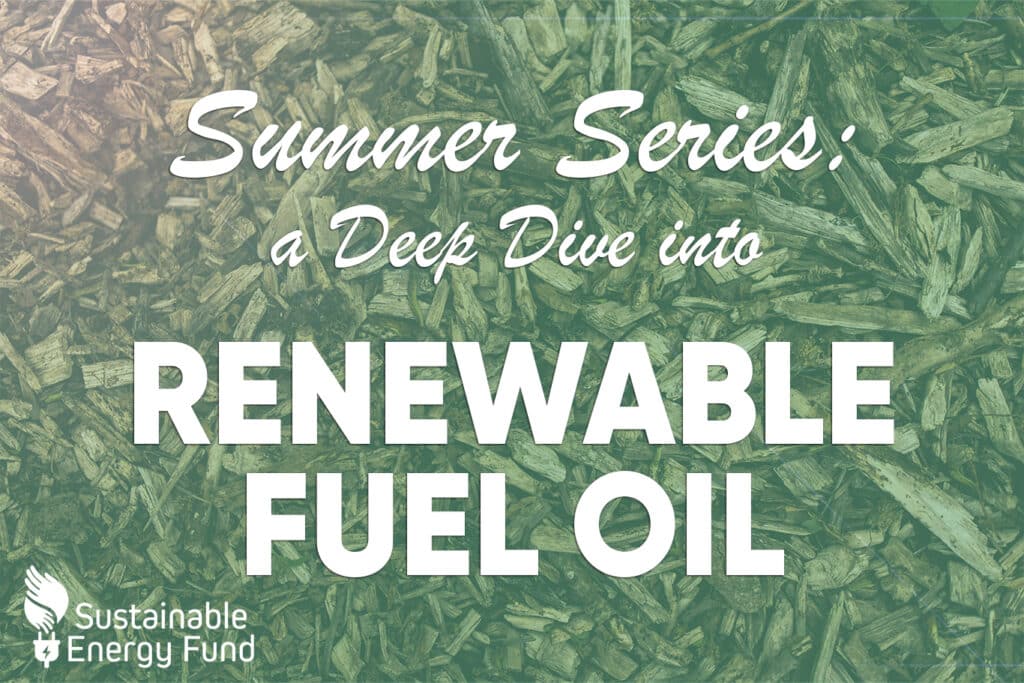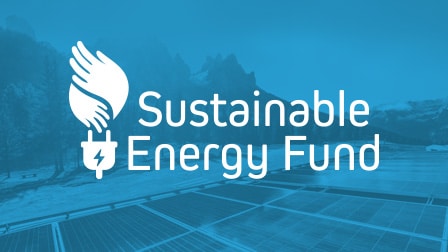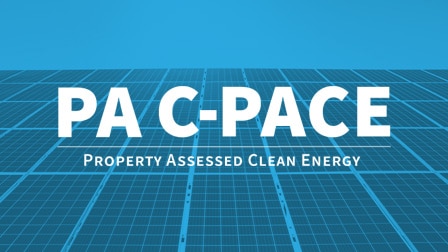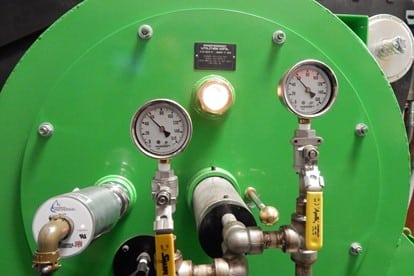FOR IMMEDIATE RELEASE Sustainable Energy Fund Contact: Katrina LaubachMarketing [email protected] Family Promise Contact: Cathy LammExecutive [email protected] Sustainable...
» Read MoreSummer Series: An RFO Overview

Sustainable Energy Fund introduces the Summer Series: A Deep Dive into Renewable Fuel Oil. The Summer Series, a bi-weekly newsletter, focuses on different aspects of RFO and its potential uses for institutions including but not limited to schools and universities, hospitals, and industries.
The development of renewable fuel oil, produced from locally sourced waste wood products, could replace traditional fuel oil and natural gas to significantly lower the carbon footprint.
Use Cases
Renewable Fuel Oil (RFO) is an environmentally superior alternative to traditional fossil fuels in heat-intensive operations. Some use cases can vary from campus heating for higher education institutions and hospitals to industrial uses requiring substantial process heat.
“The Why”
For many institutions, the decarbonization of heating presents a significant challenge in achieving their climate goals. Renewable fuel oil is produced using sustainably sourced and renewable biomass such as forestry residues. This results in a low-carbon fuel that can propel your institution towards its sustainability goals.
Economics
Other decarbonization opportunities on the market, such as electrification and geothermal, can require substantial facility overhauls. Conversely, existing facilities may be retrofitted to utilize RFO. This can save on conversion costs and downtime and avoid facilities staff training on new equipment.
In addition, the last few years have shown even natural gas prices are susceptible to price volatility. Adoption of another domestically produced fuel could increase resilience to volatile energy prices. Attributing a carbon price to the continued use of fossil fuels can help highlight RFO as a highly cost-competitive alternative. The Renewable Fuel Standard also aids in keeping the cost of this fuel competitive through the generation of Renewable Identification Numbers (RINs).

Supply Chain
Originally, commercial availability for this product was limited to Canada and the northern United States. However, a new production facility is being developed in Maine that could supplement an early market in Pennsylvania. Furthermore, establishing enough demand within Pennsylvania and its nearby states may result in the possibility of developing a nearby production facility, further decreasing emissions attributed to the transportation of RFO.
Call to Action
With this new development in the pipeline, SEF is actively seeking interested parties who may serve as early adopters to bring this opportunity to Pennsylvania.
Check back regularly for more RFO blog updates.








